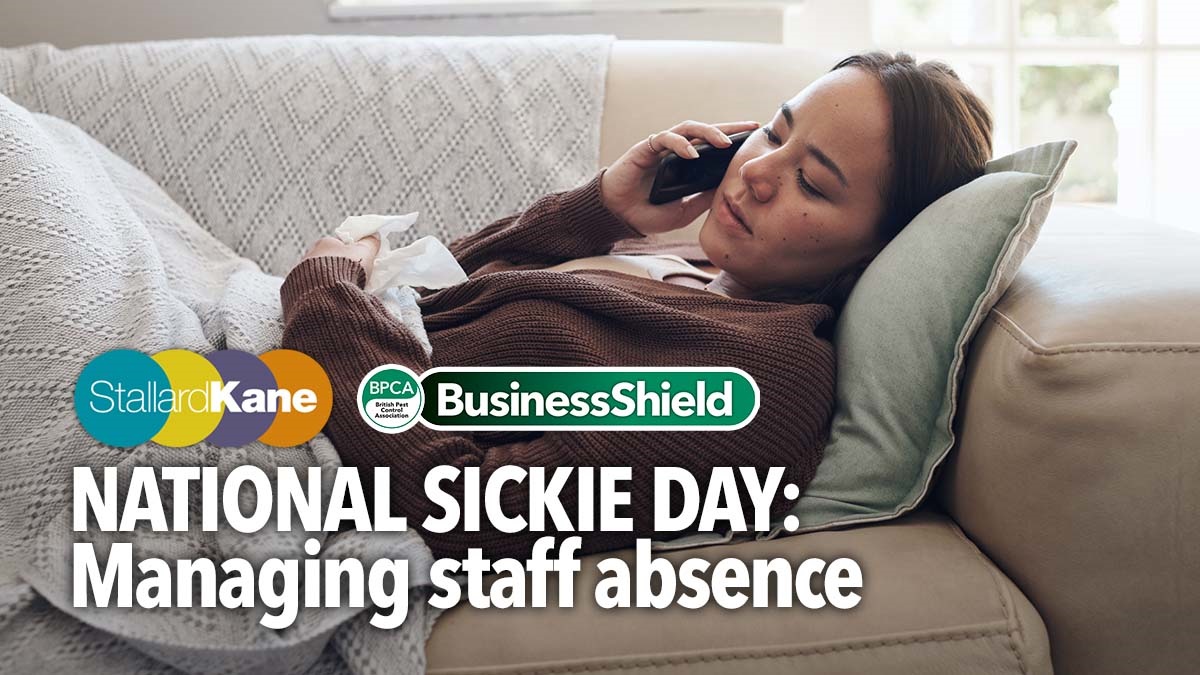Article via Stallard Kane, BPCA Business Shield
No, that doesn’t mean we can all call in sick, but National “Sickie” Day is usually marked on the first Monday in February – this year's being today, Monday 7 February.
Why? Because, according to research and reports, it’s traditionally the day that records the highest proportion of people reporting in sick throughout the whole calendar year (an estimated 375,000).
Employee sickness can be costly to any business, which is why it's important to manage sickness closely.

Top tips for managing employee sickness
Communicate your company sickness and absence policy
Make your employees aware of the company sickness and absence policy.
This could be done through the company’s employee handbook, and should make clear how the employee should report their sickness, either via a telephone call or email (not by text!), who to report their absence to and by what time.
Self-certifying
Employees can now self-certify for up to 7 days, without requiring a sick note to validate their absence.
From the end of December to the end of January, the government put a temporary adjustment in place to extend the amount of time an employee can self-certify to 28 days, as this allowed GPs to support with the COVID-19 booster programme.
The government have now reverted back to an employee self-certifying for up to 7 days.
Keep in contact
Keep in regular contact with your employee whilst off sick, as this will help the company to receive up to date information should the employee either want to return or stay off for an extended period of sickness absence.
Sick notes
If an employee is sick and off for longer than 7 days, they will need to contact their GP to obtain a sick note from their 8th calendar date of absence, which will allow the company to validate their period of absence for the payment of SSP purposes.
Record absences
It’s very important for a company to record their employee’s absence, whether this be on a self-certification form or through a timesheet system, stating the number of absences, the reason for absences and how long these absences lasted.
High levels of sickness?
Should an employee have a high level of sickness, a company can use their absence reporting documents or systems to evidence this.
Should there be patterns to the employee’s sickness or a high volume of sickness, you should contact your designated HR Advisor who can review this and provide guidance on further support or possible disciplinary action.
Avoid discrimination
Companies must be aware of employees with high levels of sickness that are because of a medical condition.
If an employee has a large amount of sickness absence because of the same reason, such as a diagnosed medical condition, a company shouldn’t proceed with disciplinary action as this could result in a discrimination claim being raised leading to an employment tribunal.
At this point, please contact your designated HR Advisor who will be able to provide further advice.
Sick Pay
It’s vital to be clear to employees what pay they would receive whilst on sick. If they have a contractual sick pay clause in their contract, the employee would be entitled to this first until they exhaust this amount.
The employee would then revert to Statutory Sick Pay (SSP).
If an employee is entitled to SSP only, the first three days of absence would be qualifying days, with SSP being paid from their fourth day of sickness. An employee could be entitled to SSP for up to 28 weeks of sickness.
WANT MORE EMPLOYMENT LAW ADVICE?
BPCA members have free access to dozens of pages of information on employment law and HR Calculators through BPCA BusinessShield.
bpca.business-shield.co.uk (login required)

Source: Online